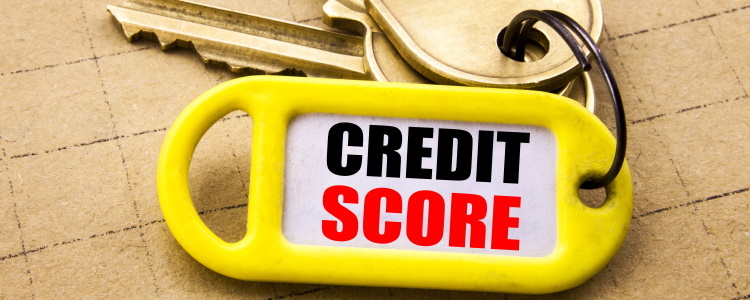Having a poor credit score at the jump can be a big disadvantage when you’re looking to take on a car loan. However, there are lenders that assist borrowers with credit challenges, and we have a few tips on increasing your chances of qualifying for vehicle financing.
Step 1: Know Your Credit Situation
When you apply for new credit with an auto lender, they’re likely to pull your credit reports to get a better idea of your credit history and you as a borrower. Before you do anything else, be sure to check your credit reports and score to see what lenders are seeing.
Your credit score determines much of your auto loan eligibility. A high credit score can help you qualify for lower interest rates, increase your chances of getting approved for higher loan amounts, and overall, improve your chances of qualifying for a car loan.
Step 2: Choosing the Right Auto Lender
If you know that your credit situation is poor, then choosing the right auto lender can help you boost your car loan eligibility.
There are many different auto lenders to choose from. Most consumers think of banks or credit unions as the go-to for their vehicle financing needs, but most dealerships are also signed up with third-party lenders that may be able to assist borrowers with unique credit challenges.
- Banks and credit unions – Direct auto lenders. They offer preapprovals, may be able to offer competitive interest rates, and typically require borrowers to have good credit.
- Captive lenders of automakers – Third-party lenders such as GM Financial, Kia Motors Finance, and Ford Motor Credit. Captive lenders are known to offer great deals and rebates, and many typically require borrowers to meet high credit score requirements.
- Subprime lenders – Third-party lenders that specialize in assisting borrowers with credit challenges, signed up with special finance dealerships. Generally require multiple documents to get a better understanding of a borrower alongside credit rating.
- In-house financing – Typically offered at buy here pay here used car lots, where the dealer is the lender. A credit check may not be required, used vehicle sales only, and may have to plan for a high interest rate to compensate for lack of credit check.
It can be tough to meet the credit score requirements of a traditional auto lender, such as a bank, credit union, or captive lender.
If you’ve been turned down for vehicle financing with traditional lenders because you have credit challenges, then checking with alternative lenders such as a subprime lender or in-house financing dealership could mean a higher chance of getting approved for a car loan.
Step 3: Consider a Cosigner
If you’ve never borrowed money before, or your credit history isn’t great, then a cosigner can be a great way to increase your auto loan approval odds. Cosigners help you meet the credit score requirements of a lender. They also promise to repay the loan if you become unable to, so they’re a backup payer that further secures the loan.
Not everyone has the luxury of having a family member that’s willing to cosign for a car loan. However, there are typically no restrictions on who can be your cosigner – a family member, friend, or even a co-worker could be your cosigner if they have good enough credit. The only common exception is that your spouse can’t be your cosigner.
Step 4: Have a Down Payment
One thing you can do to increase your odds of qualifying for a car loan is having a down payment. Down payments lower how much you need to finance, lower your monthly payment, and show lenders that you’re willing to invest some of your own cash into the vehicle.
Generally, if you have poor credit, expect to need at least $1,000 or 10% of the vehicle’s selling price. In many cases, the more you can put down, the higher your eligibility for auto financing.
Step 5: Shop Realistically
If you have bad credit, now may not be the time to finance your dream car. With poor credit, it’s often recommended to choose an affordable used vehicle that meets your transportation needs without breaking the bank.
Used cars are typically less expensive than brand new ones, and even certified pre-owned vehicles are generally more affordable. And, if you’re working with a lender that assists borrowers with credit challenges, odds are, you’re going to need a down payment.
Meeting the down payment requirement on a used car is likely to be easier, given the lower selling price of used vehicles. Choosing an affordable car can also mean lower monthly payments, which can increase your odds of successfully repaying the loan, and therefore, your eligibility.
Step 6: Find a Dealership for Your Credit Needs
Finding a dealer that’s signed up with bad credit auto lenders starts with locating a special finance dealership. However, you don’t have to do the looking yourself if you begin your car shopping journey with us at Auto Credit Express. We’ve created a nationwide network of special finance dealers, and we want to locate one in your local area. Complete our free auto loan request form, and we’ll get right to work!
















